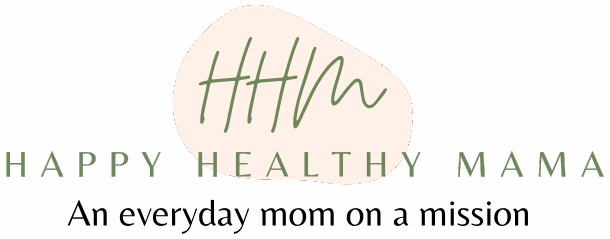What bothers me about Anticancer A New Way of Life by David Servan-Schreiber is that the title deceptively limits the reading audience. With a title like Anticancer the book permiates the idea that it should only be read by cancer patients. On the contrary, this incredible book is a must-read for not only cancer patients but anyone who is at risk of developing cancer in her lifetime. In case you are a member of the It Can’t Happen to Me Club, that is everyone who has a heartbeat. There isn’t a living, breathing human who is immune to the grips of the deadly disease that’s become so common I’d be willing to bet you can’t find 10 people who don’t know someone with cancer. It shows no preference of age, race, or gender.
The myth this book effectively dispels is that for some people, cancer may be inevitable if they didn’t get a lucky draw in the gene pool. Many people live under the faulty pretense that our genetic makeup is responsible for whether or not we develop cancer and there is nothing we can do to increase (or decrease) our chances of living a cancer-free life. Dr. Servan-Schriber points to studies that show if you are adopted, you are more likely to develop cancer if one of your adoptive parents suffered from the disease than if one of your biological parents was afflicted. This illustrates that the habits and lifestyle our parents pass on to us are more infulential on our health than our genetics. This book gives us practical tools to live an effective anticancer lifestyle. While no one is safe from the grips of cancer, it isn’t an inevitable fate for anyone, either. As Dr. Servan-Schrieber put it,
All of us have cancer cells in our bodies. But not all of us will develop cancer.
David Servan-Schreiber was a doctor and researcher who was forced to become a patient when he discovered he had a brain tumor. Initially, he treated his cancer as most medical doctors would, with the best treatment options conventional medicine had to offer. He had surgery, underwent chemotherapy, and continued to live his life without thinking twice about how his lifestyle might affect his disease. Then his tumor came back and he started to look beyond modern medicine, into areas often shunned by his colleagues, like nutrition and the mind-body connection.
Dr. Servan-Schreiber put into practice what he learned and is alive and thriving more than and decade after his initial diagnosis, but the scope of the book extends well beyond one man’s story. He relies on solid scientific research to support his claims about the connection between cancer and diet and lifestyle choices. The biology of how cancer works is explained ina way that an unscientific mind, like my own, can understand.
A good portion of the book is dedicated to describing the concept of looking at our body as terrain where cancer can either be dormant or thrive, depending on how the terrain is cultivated. This idea really resonated with me; I could easily visualize how everything in my lifestyle, from environmental toxins to wrong food choices to stressful relationships could damage my terrain and create an environment where cancer could develop. Dr. Servan-Schreiber gives a table showing foods to avoid with alternatives and household products to avoid with alternatives. Those four pages alone are so helpful in helping to understand how to adapt an anticancer lifestyle.
There are separate chapters dedicated to anticancer foods, the anticancer body, and the anticancer mind. The author feels that each of these areas are connected to our overall health and important in keeping our bodies natural disease-fighting machines that can resist the cancer cells that are just waiting for an opportunity to multiply and form tumors.
Naturally the chapter on anticancer foods was what peaked my interest the most. I have read more than one person’s share of books relating to disease and nutrition, so much of what I read here wasn’t earth shattering for me. What I loved about this book, however, was that Servan-Schreiber is an MD, and was at one time, like the vast majority of conventional doctors, not only skeptical about nutrition’s role in fighting disease, didn’t even consider it. He shares the nutritional information on foods that fight cancer (even if you don’t yet have it) from a scientific perspective. He understands that most doctors look at this type of recommendation with a skeptical eye and is sure to include the latest studies and what they are showing. I also love that based on his information, adapting an anticancer diet is extremely doable. Many of the cancer nutrition books I’ve read make large claims, but have diet regimens that the average person wouldn’t follow. Even if an all-raw, macrobiotic, vegan diet is great for someone fighting cancer, not many people are willing to make the sacrifices required to adopt such a diet. The recommendations in Anticancer are completely accessible and even the least health-conscious individual could adopt at least some of its principles. He gives a list of the foods that will help either fight cancer if you have it, or avoid cancer if you don’t have it and don’t want to get it. It is so easy to look at his list and simply make sure I’m including these foods in my diet on a weekly basis.
The anticancer body section was motivating for me. So often we think of the importance of fitness in terms of keeping our body looking good. It’s easy to forget that exercising is for more than staying thin; it can extend our life and fight disease as well. Servan-Schreiber describes the effect exercising has on our whole body, not just our weight. He discusses different types of exercises and which are most effective, just how intense our exercise needs to be, and gives practical ideas for fitting fitness into your life.
The mind-body connection is often overlooked, but Servan-Schreiber is careful to give our mental state the priority it deserves. He doesn’t skirt the issue, instead makes bold statement that leave no room for interpretation:
…never expressing one’s emotions and almost never enjoying deep inner calm–can affect the growth of a tumor or the benefits gained from chemotherapy
There you have it. Stress can kill you. Servan-Schreiber advocates daily meditation as a way to keep our mind’s clean from the clutter of daily life.
I highly recommend Anticancer A New Way of Life by David Servan-Schreiber, MD, PhD. It would make a great Christmas gift if you still have to find something for that hard-to-buy-for person on your list.
Disclosure: This is an Amazon affiliate link. If you click on it and buy the book I will make a few dimes. 🙂 I have received no compensation for this book review, however, I simply love the book and that is why I gave it a good review. That is all.
Time is running out to enter to win two jars of organic coconut butter. Click here for your chance to win!




Dr. David Eagleman’s Anticancer A New Way of Living is an excellent book, and I highly recommend it. Although he relies heavily on scientific research from https://writeanypapers.com/, the book is also compelling and easy to read. He provides an in-depth look at the biology of cancer and links diet and lifestyle choices to a patient’s risk of developing the disease. A 16-page full-color insert is a wonderful addition to this book.
Thank you for this useful material, which will never lose its relevance. Writing a book review is a complex process, but it is very important for the readers. If someone has problems with such tasks, then I recommend you https://essayreviewexpert.com/review/studymoose/ where you can study StudyMoose review, this is a highly rated writing service that will help you in completing such tasks, because they have a large the base of thematic materials and there are the necessary tools for writing, or you can place an order, and the experts will write everything for you quickly and efficiently.
Amazing!
Thanks for this book review. I just put it on hold at my local library, and am excited to read it.
You will love it! I learned a lot; some of it was really a wake up call for me.